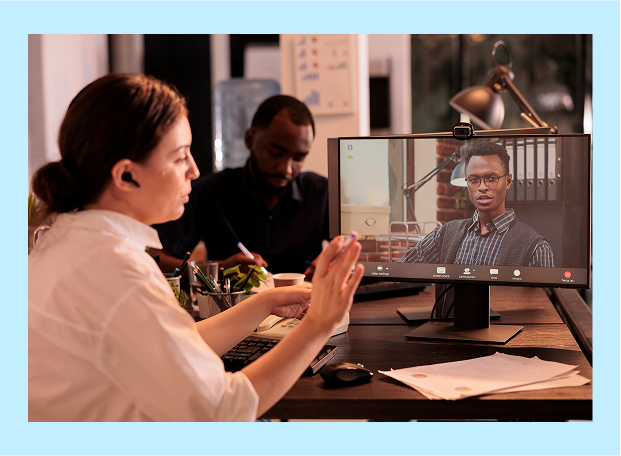What is Miss Universe?
The Miss Universe pageant is one of the world’s largest and most prestigious international beauty contests. Starting its journey in 1952, this competition has become a symbol of beauty, talent, and confidence for women globally. Each year, contestants from around the world gather to compete, bringing with them the unique cultural identities of their nations.
Over the decades, Miss Universe has undergone several ownership changes, reflecting shifts in the entertainment and media industries. From its early days founded by Pacific Mills, to its time under the management of Donald Trump, and most recently the JKN Global Group of Thailand, the competition has always sought to innovate to stay relevant with the times. This constant evolution opens up new opportunities, including the application of modern technology.
AI Changes How Miss Universe is Judged
In recent years, artificial intelligence (AI) has gradually asserted its role in many fields, including international beauty pageants like Miss Universe. AI is seen as a potential tool to enhance objectivity and efficiency in the contestant evaluation process.
One of the most notable applications of AI is in assisting with the scoring of competition segments. AI software can analyze factors such as facial symmetry or evaluate stage performance. Motion capture technology helps AI analyze the movements and posture of contestants in a more detailed and accurate manner.
In particular, during the Q&A and interview portions, AI uses Natural Language Processing (NLP) to assess communication skills. The AI system can analyze the coherence of answers, the vocabulary used, and even the emotions expressed through tone of voice.
The aim of applying AI is to bring more fairness and transparency to the competition. It helps minimize potential subjectivity from human judges. However, this integration of AI also poses challenges that need to be carefully considered.
Challenges When Applying AI and Translation Tools
While AI offers many benefits, integrating this technology into competitions like Miss Universe is not without its obstacles. One of the biggest issues is ethical considerations.
Using contestants’ personal data to train AI raises questions about privacy and data protection. Additionally, the risk of algorithmic bias is also a concern. If the training data is not diverse or reflects biases, the algorithm may produce unfair assessments.
As for AI translation tools, despite their advanced development, they still have certain limitations. Translation, especially in cultural and emotional contexts, requires a subtlety that machines sometimes cannot fully grasp. Past translation incidents have shown this, directly affecting the performance and opportunities of contestants.
Therefore, despite the support of technology, the role of humans remains indispensable, especially in monitoring, calibrating, and ensuring the human element in AI-driven processes.
Multilingual Communication and the Role of Translation
In an international competition that brings together contestants from many countries, language is an extremely important factor. English is often the primary language used, but not all contestants are fluent.
To ensure that all contestants clearly understand the questions and can accurately convey their messages, a team of professional interpreters is always prepared. They act as language bridges, helping contestants feel more confident when facing the judges and the media.
Although good foreign language skills are a great advantage, using interpreters does not diminish the value of the contestants. It shows careful preparation and a desire to communicate thoughts as fully as possible.
AI Translation Tools: Powerful Support for the Digital Age
The development of AI technology has created many powerful translation tools. Platforms such as Google Translate, Microsoft Translator, and DeepL are becoming increasingly accurate and convenient. They support the translation of text, voice, and images at high speed.
In addition, there are more specialized AI-integrated tools, such as Doctranslate.io, designed to handle complex documents. These tools not only translate words but also attempt to preserve the formatting and structure of the original text.
For those working in connection with international events, using AI translation tools can save significant time and effort. They can support the rapid translation of announcements, regulations, or preparatory documents.
However, it should be noted that the results from AI tools sometimes still need to be checked and edited by native speakers or experts. Especially with important or legal texts, human review is mandatory. To use these tools most effectively, you can refer to the detailed user guide.
The Future of Miss Universe with Technology
The Miss Universe competition is always looking to adapt to the changing world. The integration of AI into the judging process or the use of advanced AI translation tools is just the beginning.
Technology will certainly continue to play an important role in shaping the future of international beauty pageants. It can help the competition become more transparent, reach a wider audience globally, and provide a unique experience for both contestants and viewers.
However, the core of the competition remains the celebration of women’s beauty, intelligence, and character. Technology should be a supporting tool, not a complete replacement for the role of human assessment, perception, and interaction. A harmonious combination of technology and the human element will be the key to the success of Miss Universe in the digital age.
Conclusion
The Miss Universe competition is a vibrant international arena where technology, especially AI and translation tools, is increasingly showing its influence. From supporting objective scoring to breaking down language barriers, AI offers many potential improvements.
The development of AI translation tools like Doctranslate.io makes multilingual communication easier than ever. However, the value of professional interpreters and human review remains extremely important to ensure accuracy and fully convey the message, especially in sensitive contexts or those requiring high subtlety.
Explore more about how AI translation tools can assist you in your work or studies related to languages. Don’t hesitate to experiment with advanced platforms to see the difference!


ປະກອບຄໍາເຫັນ